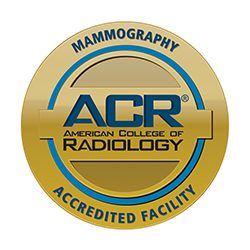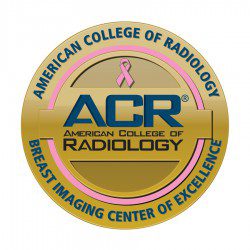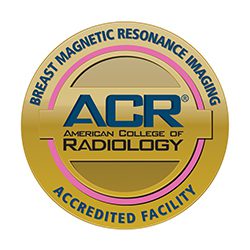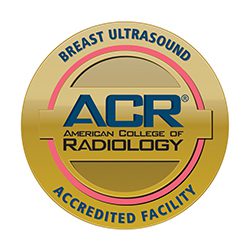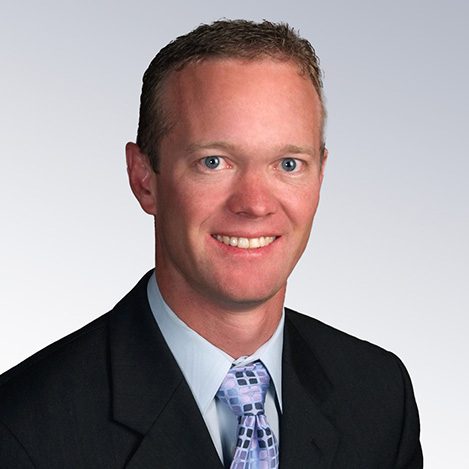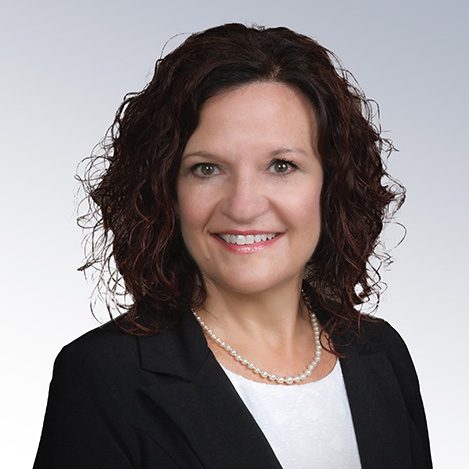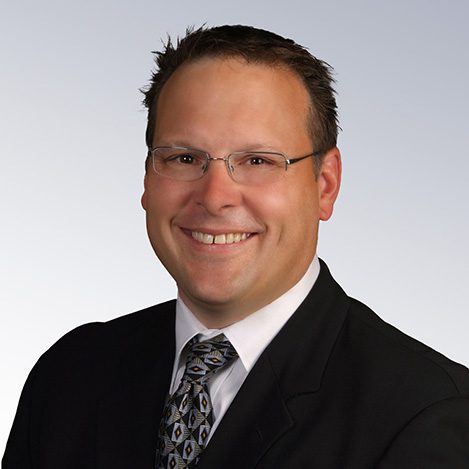
Personalized, Patient-Centered Care for Your Breast Health
From mammograms and other diagnostic/screening services to prevention, genetic testing, survivorship, treatment and surgery, our Breast Care Center at HaysMed provides the comprehensive breast care you need, close to home. With our personalized services and advanced technology, expert breast care is one more way we specialize in you.
Regular mammograms are essential for breast health. At HaysMed, we have several ways you can schedule a mammogram:
- You can call 785-623-6565 to schedule your mammogram.
- If you have a patient portal account, you can log in at https://rb.gy/cfjfhj and schedule an appointment.
- If you don’t have a patient portal account, you can create one and then schedule your mammogram.
If you have questions about mammograms, please call the Breast Care Center at (785) 623-5114 or speak with your healthcare provider.
Coordinated Oncology Care
The staff at our Breast Care Center works closely with many other specialists to provide a seamless and timely plan of care for your breast diagnosis. You may require the services of a surgeon, oncologist, radiation oncologist and/or reconstructive surgeon. To learn more about our specialists and strengths in these areas, visit the following links:
General Surgery
Dreiling-Schmidt Cancer Institute
Radiation Oncology
Noncancerous (Benign) Breast Conditions
Even though benign breast conditions are noncancerous, they can cause discomfort and require treatment. Unfortunately, many breast conditions mimic the symptoms of cancer and require tests and sometimes even biopsy to diagnose properly. Though the prospect of cancer is certainly scary, most biopsies find a benign breast condition instead of cancer. At the Breast Care Center, we can help you work through any abnormality you may encounter with your breasts. Common benign conditions include:
- Hyperplasia
- Cysts
- Fibroadenoma
- Sclerosing adenosis
- Intraductal papilloma
- Benign phyllodes tumor
Screening/Diagnostic Services
Doctors and scientists agree that early detection is the best defense against breast cancer. When you are seen at the Breast Care Center, you will have a clinical breast exam by a breast specialist. A plan for screening and follow-up will be tailored for you based on your individual risk assessment. Below, we provide more detail about the types of diagnostic and screen procedures we offer for your breast health.
Mammograms and Breast Tomosynthesis
Our 3D Mammography technology is an advanced system that captures three-dimensional images of the internal structures of the breast. It allows the radiologist to scroll through the breast to find cancer or other breast abnormalities at an earlier stage than 2D mammography. Our mammography services at HaysMed are accredited by the American College of Radiology and certified by the U.S. Food and Drug Administration.
Breast tomosynthesis is the latest technology in the fight against breast cancer, enabling the three-dimensional imaging needed to identify breast cancer sooner, when it’s smaller and less likely to have spread to other parts of the body. Breast tomosynthesis is used in conjunction with digital mammography as part of your annual screening mammogram to capture more breast images. Using breast tomosynthesis and digital mammography together for screening has been proven to reduce “call-backs.”
Breast tomosynthesis converts digital breast images into a stack of very thin layers or “slices” – building what is essentially a three-dimensional mammogram. This type of breast imaging allows doctors to examine breast tissue one layer (or millimeter) at a time, instead of viewing all the complexities of your breast tissue in a flat image. Fine details are more clearly visible, no longer hidden by the tissue above and below.
A tomosynthesis exam is very similar to a traditional mammogram. The exam time is approximately the same as a digital mammogram and delivers a similar radiation dose.
Just as with your digital mammogram, your breast will be compressed while the X-ray arm makes a quick arc over the breast taking a series of images at a number of angles. Both 2D and 3D images are obtained simultaneously. With tomosynthesis, additional compression and adjustment of the breast is not required.
Its advantages include:
- 30% increase in breast cancer detection
- Less time needed for breast compression during testing
- Lower average radiation dose
- Quality images viewed quickly to assure the evaluation is complete prior to the patient leaving the room
- May provide a lower chance you will have to come back for additional mammographic imaging
Breast Ultrasound
Ultrasound is a safe and painless test using sound waves. It is not an X-ray and does not use radiation. The technologist will apply gel to the skin and move a camera-like probe in many directions over the breast. Live in-motion images are displayed on a high-resolution monitor. Ultrasound is used to further study a specific area on a mammogram or a palpable lump – and it can be used as a guide for minimally invasive procedures. This exam can determine the difference between a fluid filled lesion (cyst) or a solid lesion.
Breast MRI
Magnetic Resonance Imaging (MRI) of the breast is a special breast imaging technique which utilizes intravenous contrast while obtaining multiple cross-sectional images of your breasts, muscle and chest wall. Image processing and our CAD (Computer Aided Detection) system are used for review and interpretation by a board-certified radiologist. MRI is highly sensitive for evaluating abnormalities seen on ultrasound or mammography but can also detect lesions that are not palpable or not seen on mammography. It is especially helpful in women with dense breast tissue or implants which may limit other imaging options. Although used for the detection of breast cancer, it can also be beneficial in evaluating treatment effectiveness or disease in the unaffected breast or breast implant integrity. Optimal imaging requires specific patient scheduling within 7 to 10 days of the most recent menstrual cycle, cessation of hormone replacement therapy for 30 days, and careful safety screening.
Stereotactic Breast Biopsy
This is a minimally invasive procedure using digital X-ray to precisely locate a lesion. We utilize the most state of the art vacuum-assisted core biopsy device to remove multiple samples of breast tissue for analysis. This procedure requires the use of local numbing medication injected into the breast (anesthetic) so there is little or no discomfort. The patient is seated for the procedure.
Ultrasound-Guided Breast Biopsy
This is a minimally invasive procedure that uses real-time ultrasound imaging to precisely locate a lesion. We utilize the most state-of-the-art vacuum-assisted core biopsy device to remove multiple breast tissue for analysis. This procedure is done using local numbing medication, does not require sutures and causes little or no discomfort.
Cutting-Edge Clinical Trials, Close to Home
Through clinical trials, our breast cancer patients have access to the latest treatments and therapies, right here in western Kansas at HaysMed. Based on what’s appropriate for your unique breast cancer diagnosis, you can choose to participate in clinical trials for state-of-the-art breast cancer treatments. It also gives you the chance to help fuel research that can improve cancer care for generations to come.
As a member of the Masonic Cancer Alliance, we bring you access to the most cutting-edge clinical trials for your cancer journey. The goal of all clinical trials is to determine whether a new test or treatment is safe and effective for widespread use – like new surgical procedures or devices, new diagnostic testing, new drugs or new combinations of drugs already being used – or new ways to use existing treatments. Clinical trials may also examine various other aspects of care (e.g., improving quality of life).
Clinical trials are a late-stage part of clinical research projects, meaning an enormous amount of research and testing has already been put into each new therapy before it becomes available to patients as trials. Because they look for new ways to prevent, detect and treat disease, clinical trials have a long history of success and have been at the heart of so many medical advances.
Clinical trials offer so much hope for so many people, and they give you an opportunity to help cancer researchers find better treatments for all of us in the future. To learn more about clinical trials and cancer care at HaysMed, visit our Dreiling/Schmidt Cancer Institute.
Masonic Cancer Alliance
HaysMed and the Breast Care Center are members of a unique partnership with the Masonic Cancer Alliance (MCA) bringing cutting-edge clinical trials and the latest prevention and screening tools to regions in an effort to provide access to the latest advancements in cancer treatment. The MCA links the discoveries made in the lab to a region-wide network of hospitals and health care organizations in an effort to advance the quality and reach of cancer prevention, detection, treatment, and survivorship methods to Kansas.
To contact the Breast Care Center at HaysMed, call 785-623-5114.
Genetic Testing: Assessing Your Cancer Risk
Approximately 10 percent of breast and ovarian cancers are inherited. Hereditary breast and ovarian cancer is often due to a mutation or alteration in either of two genes: BRCA1 and BRCA2. These genes can be inherited from either your father or mother and can be passed on to your children if you have the abnormal gene.
If you have the BRCA1 or BRCA2 gene, you can take action now to reduce your chance of getting breast or ovarian cancer or both. Knowing this information will help you make a plan of action with your physician to help prevent cancer or detect it very early.
Genetic testing is not necessary for everyone. Consider genetic testing if you have a personal or family history of one or more of the following:
- Breast cancer before age 50
- Ovarian cancer at any age
- Two primary breast cancers in an individual at any age
- Male breast cancer at any age
- Two or more breast cancers in a family, one under the age of 50
- Women of Ashkenazi Jewish descent with breast or ovarian cancer at any age
- A previously identified BRCA mutation in the family
The BRCA1 and BRCA2 analysis can be collected by taking a small amount of your blood or from oral washings. The results are reported to your ordering physician within 7 to 10 business days. Most insurance covers some of the testing cost if one of the above criteria is met.
For more information or to make an appointment, call 785-623-5114.
High-Risk Assessment and Prevention Consultation
Some women are at increased risk for breast cancer due to factors like genetics. Our breast cancer prevention program is designed to help you understand your personal risk of breast cancer and help you explore your best options for lowering your risk and increasing your screenings to detect potential problems as early as possible.
When you visit the Breast Care Center, you will have a risk assessment consultation which will include:
- Gathering personal and family health history information
- Calculating your short and long-term breast cancer risk
- Performing a clinical breast examination
- Discussing screening recommendations, including digital mammography, ultrasound and MRI
- Providing lifestyle strategies to reduce risk
- Reviewing prevention options and clinical trials
- Discussing the need for genetic testing if appropriate
Who should be evaluated?
- Anyone concerned about their risk of developing breast cancer
- Anyone at increased risk of breast cancer
Breast Cancer Risk Factors
Major risk factors:
- Inherited genetic mutations (BRCA1 and BRCA2) or a mutation present in the family
- First degree relative with a cancer diagnosis under the age of 60
- Chest radiation before the age of 30
- Precancerous biopsy findings such as epithelial hyperplasia or atypical ductal hyperplasia
- Personal history of breast or ovarian cancer
- Age greater than 60
Minor risk factors:
- Long menstrual history (menstrual periods starting early and ending late in life)
- Never having children
- Having one’s first child after the age of 30
- Prolonged use of postmenopausal hormone replacement therapy
- Postmenopausal obesity
- Multiple second or third degree relatives with breast and/or ovarian cancer
- Multiple breast biopsies
- High breast tissue density (a mammographic measure of the amount of glandular tissue relative to the fatty tissue of the breast)
For more information on breast cancer risk, call the Breast Care Center at 785-623-5114.
Personalized Patient Navigation
Your patient navigator at the Breast Care Center is here to guide you through the diagnostic workup and treatment phases of your breast care, ensuring a smooth and helpful patient experience. A patient navigator specializes in making sure all patients with abnormal test results receive timely follow up, diagnosis and treatment to achieve positive outcomes. Additionally, the patient navigator will make sure that your primary care physician is kept informed of your present situation and plan of care.
To learn more about our patient navigator services, call the Breast Care Center at 785-623-5114.

Patient Navigator
Sarah Fischer, RN, Certified Breast Health Clinical Navigator
Sarah has been a Registered Nurse since 2010. Prior to the position of Breast Health Nurse Navigator, she was a clinic and treatment nurse and treatment nurse manager for the Dreiling Schmidt Cancer Institute for 18 years.
Patient Resources
HaysMed Breast Care Center has the following information and more on resources for breast care patients. For additional questions or more breast care resources, call the Breast Care Center at 785-623-5114.
Local Breast Cancer Support Groups
Breast Friends Breast Cancer Support Group
Meets the third Wednesday of every month at 6:00 p.m.
Mi Tierra Mexican Restaurant, 118 East 1st; Hoisington, KS
For more information, call 620-791-7224.
Circle of Hope Cancer Support Group
2507 Fourth Terrace; Dodge City, KS
For more information, call 620-227-7277.
Important information about breast care, prevention and treatment can be found at the following links:
American Cancer Society
BreastCancer.org
National Cancer Institute
National Lymphedema Network
National Research Center for Women and Families
Office on Women’s Health
Cancer.Net
For more information or to make an appointment at the HaysMed Breast Care Center, call 785-623-5114.
Breast Cancer Survivorship Program
More people are living with and beyond cancer than ever before. Today, there are nearly 20 million cancer survivors in the United States, a number that the National Cancer Institute projects to keep rising for years to come. Such projections reflect both the increased prevalence of cancer diagnoses, and the improved ability to treat them effectively.
After breast cancer treatment is complete and you have finished your follow up routine with your oncologist, it will be time to transition to survivorship appointments. Our Breast Cancer Survivorship Program provides long-term monitoring for any long-term effects from your cancer and/or cancer treatments. Coming to the Breast Care Center will ensure that you are being seen by a breast specialist who knows how to monitor and manage your care.
Breast Cancer Survivorship visits can provide::
- Information on how to manage the short-term and long-term physical effects of cancer and its treatment
- Sources of support for emotional and spiritual concerns
- Answers to common questions about life after treatment
- Resources that can improve your quality of life and health
For more information on Breast Cancer Survivorship, call the Breast Care Center at 785-623-5114.
Our Location
The HaysMed Breast Care Center is located at:
2220 Canterbury Drive
Hays, KS 67601
For more information or to make an appointment, call 785-623-5114.
Accredited Breast Imaging Center of Excellence
The Breast Center at HaysMed is an Accredited Breast Imaging Center of Excellence, with special accreditation in breast mammography, MRI and ultrasound.
